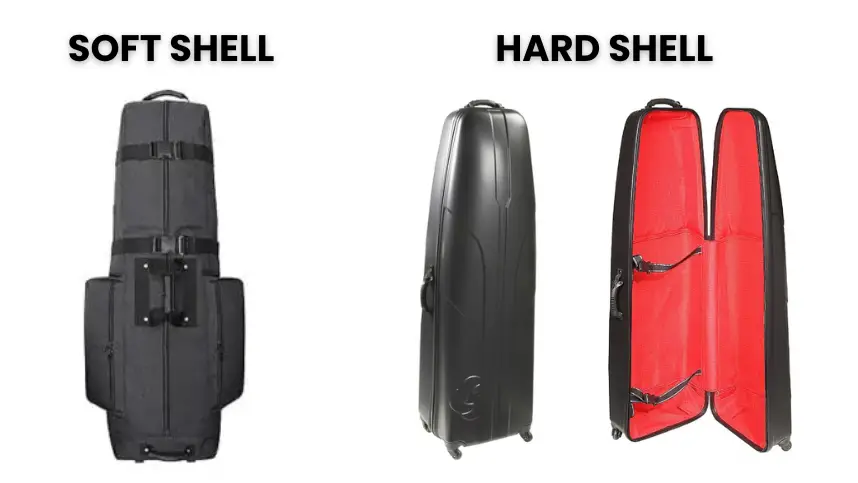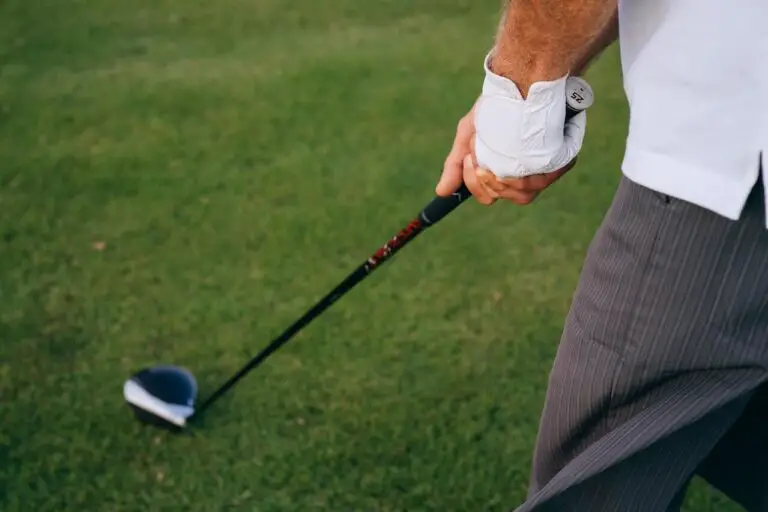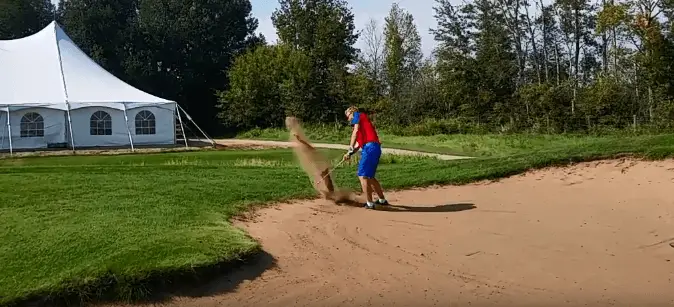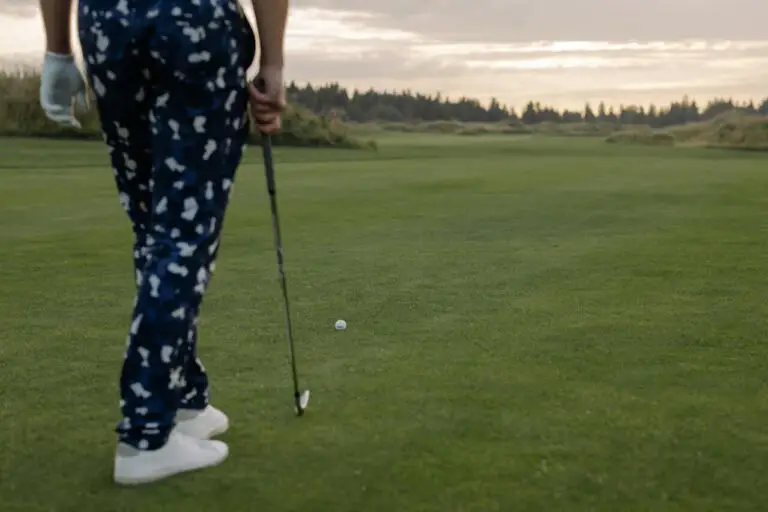How To Travel With Golf Clubs

Disclosure: This post may contain affiliate links. I may earn a small commission if you make a purchase through these links, at no extra cost to you.
Golf trips hold a special kind of excitement!
You envision the courses, perfect tee shots, and maybe even a celebratory drink at the clubhouse.
But amidst that anticipation, a nagging worry can creep in – what about your golf clubs?
Lugging your prized possessions through airports and onto planes can be a recipe for stress.
There are fears of hefty airline fees, the uncertainty of safe transport, and the dreaded possibility of damaged clubs.
This guide is here to put your mind at ease.
Let’s transform those travel worries into smooth sailing.
In this in-depth guide, we’ll cover everything you need to know to transport your clubs safely, understand airline policies, and ensure your golf vacation gets off on the right foot—without any club-related casualties.
Let’s get into it.
The Travel Bag Essentials
Your golf travel bag is the first line of defense for your beloved clubs.
Think of it as their armored transport in the unpredictable world of travel. Here’s what you need to keep in mind:
Hard Case vs. Soft Case
Hard travel cases offer maximum protection but can be bulky and less convenient…
Whereas Soft travel cases are more maneuverable and often have additional storage for shoes and apparel. Consider your travel style and prioritize protection or convenience.


Protect Your Clubs, Enjoy Your Trip
Worried about forgetting something important? Use our golf trip packing list to ensure you don’t leave any essentials behind!
The Power of Padding
Look for travel bags with substantial internal padding, especially around the top where club heads are most vulnerable.
Invest in Durability
Cheap travel bags may save some money initially, but torn seams and broken zippers are a recipe for disaster.
Choose a bag built to last through the rigors of travel.
Protection is Key: The Stiff Arm
Don’t underestimate the power of the Stiff Arm (or similar support rod).
This simple device adds crucial vertical support to your travel bag, preventing your clubs from crushing under the weight of other luggage.
Consider it a non-negotiable investment in your clubs’ safety.
Smart Packing for Added Security
Even with a great travel bag, take extra precautions.
Wrap clothes or towels around your club heads for an extra layer of cushioning.
This not only adds protection but also prevents clubs from rattling around, minimizing potential scratches and damage.
Understanding Airline Policies
Airline policies regarding golf clubs can be a bit of a maze. Avoid any surprises at the check-in counter with a simple rule: know before you go!
Do Your Homework
Don’t skip the fine print on your airline’s website. Read their baggage policies thoroughly.
This will outline specific rules for golf clubs, potential additional fees, and weight restrictions.
For Example, here is Delta Airlines policy on golf bags:

One checked golf bag should easily hold:
- Your golf bag
- Your set of golf clubs
- Golf balls and tees
- A pair of golf shoes
It’s also important to note that some airlines may require you to sign a release that they are not held responsible for any damages incurred.
Weight Matters
Most airlines consider golf bags as standard checked baggage, so your bag will likely need to be under the standard weight limit (usually around 50 lbs).
Overweight baggage fees can be steep, so a quick weigh-in at home can save you money and headaches.
Carry-On Considerations
Some airlines may treat smaller golf travel bags as carry-on luggage, but don’t assume this is the norm.
Always double-check your airline’s specific policies beforehand to avoid potential issues at the gate.
Remember, a quick check with your airline can make all the difference in a smooth golf travel experience!
How To Pack Like a Pro
Packing your golf bag for travel isn’t just about stuffing things in. A few strategic techniques will safeguard those precious clubs and give you peace of mind.

Detachable Heads – Your Protection Plan
If you have adjustable woods (drivers, fairway woods, etc.), remove the heads and pack them separately.
Wrap them in a headcover or towel for extra padding and place them nestled amongst your clothes.
This significantly reduces the risk of damage in transit.
The Power of Towels – A Versatile Shield
Towels are your secret weapon in travel-proofing your clubs. Firstly, use them to cushion club heads like we discussed earlier.
But don’t stop there!
Turn your irons inward so they face each other, and weave a towel through the shafts.
This helps to immobilize them within the bag, reducing jostling and preventing potential scratches.
Iron Organization – Think Inside Out
Turning the heads of your irons inwards isn’t just for cushioning.
It also positions the less vulnerable backsides of the clubs outwards, where most contact with the bag will occur.
It’s a subtle shift that makes a difference in protection over time.

Never Forget Your Essentials Again
Worried about forgetting something important? Use our golf trip packing checklist to ensure you don’t leave any essentials behind!
Some Additional Golf Travel Tips
Let’s wrap up with a few extra golf trip travel tips to streamline your golf travel experience:
Clean & Inspect
Give your clubs a quick cleaning before packing them up.
This makes it easier to spot any damage immediately upon arrival, simplifying any potential claims processes with the airline.
Label Clearly
A detailed luggage tag is your friend, especially as golf bags can sometimes look similar.
Include your name, address, phone number, and even your destination golf course or hotel to ensure your bag finds its way to you in case it gets lost.
Consider Shipping
For ultimate convenience, consider shipping your clubs ahead of time with a service like Ship Sticks.

They handle all the logistics, often provide insurance, and may even offer door-to-door service, leaving you luggage-free at the airport.
Insurance Options
While a good travel bag and careful packing go a long way, accidents can happen.
Look into travel insurance options or check if your existing policies might cover your clubs in case of loss or damage. This adds an extra layer of protection for peace of mind.
Arrival and Beyond
You’ve made it to your destination, now let’s ensure your clubs are ready for the course and that your golf travel gear is set for future trips.
Inspect Upon Arrival
Don’t let the excitement of the moment distract you.
As soon as you retrieve your golf bag, give your clubs a thorough inspection.
Look for any dents, cracks, or other signs of damage.
If you find anything, document it with photos and immediately report it to the airline.
Proper Storage
Protect your investment! When you’re back home, store your travel bag in a dry, cool place.
Avoid extreme temperatures or dampness that could affect the integrity of the bag’s materials.
Rental Considerations
Sometimes life throws curveballs. If your trip is short or circumstances are unexpected, remember that renting clubs at your destination is always an option.
Many golf courses have quality rental clubs available, saving you the hassle of transporting your own.
Conclusion
Traveling with golf clubs doesn’t have to equal stress. With the right preparation and knowledge, you can ensure your beloved clubs arrive ready to play.
Remember the key takeaways:
- Invest in a good travel bag or hard shell case
- Understand airline policies
- Follow our golf vacation checklist to pack like a pro
- Explore convenient shipping options
Now that you’re armed with this guide, it’s time to shift your focus from travel worries to planning those epic tee shots.
Happy golfing adventures!
Frequently Asked Questions
A: While not strictly mandatory, a dedicated golf travel bag (either hard case or padded soft case) is highly recommended for the best protection.
A: Policies vary between airlines. Some may allow smaller golf bags as carry-on, but always verify with your specific airline before heading to the airport.
A: No, fees can vary between airlines. It’s crucial to check the baggage policies of your chosen airline in advance to avoid surprises.
A: Pack this extra carefully! Wrap the club head especially well in towels or clothing, and consider using a Stiff Arm in your bag for added protection.
A: Inspect them immediately upon arrival and document any damage with photos. Report the damage promptly to the airline. Travel insurance might also cover damaged clubs.







Leave feedback about this
You must be logged in to post a comment.